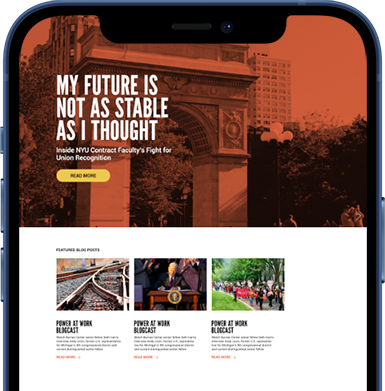Power At Work Blogcast #73 (LIVE): What Could Happen Under Trump?: A Worker Power Overview
In this first blogcast of the new Power At Work series "What Could Happen Under Trump?", Burnes Center for Social Change Senior Fellow Seth Harris laid out a worker power overview of the next Trump administration in Power At Work's first-ever live blogcast. Harris also answered questions from the live audience. He discussed the implications of a Trump presidency for unions, the NLRB, the Labor Department, federal employee unions, and much more.

